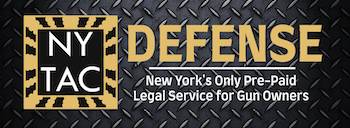Representation.
Wiretapping
Wiretapping by the government is a highly intrusive investigative technique that can be used by both the federal and New York state law enforcement officers including Detectives, Police Officer’s Agents and Deputies to aid in the investigation and prosecution of crimes. With the appropriate Wiretap Act search warrant the government can wiretap computers, cell phones, emails, text messages, encrypted text messages, face time chats, social media posts, p2p sharing of information and data, corded phones and nearly any other digital or telephonic device. Codified at 18 USC 2511, the Wiretap Act may only be used to investigate listed predicate offenses. In addition, the New York Criminal Procedure law authorized State and Local Police to use electronic surveillance shortly after the Federal Government authorized it.
If you believe that your case involves wiretap evidence obtained by the police or FBI please call our experienced New York Criminal lawyers today to help protect your rights and your privacy. Our criminal defense lawyers can help protect your interests. Call us today for a free consultation.
In 1968, at the time of the passage of the wiretap act, these predicate offenses were related to the security of the nation and sophisticated criminal networks. These crimes were severe enough to trigger a need for wiretapping as the enumerated crimes jeopardized the safety of the nation and enabled organized crime networks to victimize and exploit ordinary people.
If you believe that your case involves wiretap evidence obtained by the police or FBI please call our experienced New York Wiretapping lawyers today to protect your rights. Call us today for a free consultation.
Today, the list of offenses that may trigger wiretapping has grown so expansive that it now includes: not showing up for court, fraud through the mail, fraud and abuse through computers, reproducing immigration documents, fabrications in passport applications, inquiries into lewd pornography materials, and theft of health care products. These offenses are clearly not in the same category as acts that jeopardize national security and the type of crimes committed by gangs, like racketeering. Drug offenses now make up most of the cases investigated by wiretap.
The Wiretap Act requires a statement of necessity to be filed with every application for a wiretap warrant. This statement must include what was done to investigate the crime prior to the application, why other techniques to investigate the suspect were not successful, why said techniques were not likely to be a success if attempted another time, or why the any other technique would be too dangerous. This requirement was put into place to make sure that the government did not turn to wiretapping as their first tool in investigating crime. Unfortunately, federal appellate courts have frustrated this goal. The courts have let the government off the hook and are allowing law enforcement to use wiretaps as anything but the last resort.
New York Criminal Procedure Article 700 which authorizes wiretap applications in New York has similar requirements of establishing that other investigative techniques have been used but failed. The list of authorized crimes for which a wiretap warrant may issue has similarly been expanded to include what is now pages of crimes.
The Wiretap Act mandates that police wiretaps be limited in scope and conducted in a way that is calculated to not sweep up transmissions of information that are beyond the right of the government to listen to or view. This protects the privacy of people the police do not have warrant to spy on. It also was intended to protect the privacy of the people who are being investigated. It is particularly offensive to notions of privacy that all conversations of someone who is being wiretapped, even things outside the scope of the crime, like conversations with family, medical information, or discussions with the suspect’s attorney are subject to government intrusion. This minimization requirement has been frustrated by courts as well. Federal appellate courts are altogether happy to acquiesce to the government’s deepening intrusion on the public’s privacy. Even the US Supreme Court did not set strict rules for what constituted adequate minimization.
When it comes to electronic communications, it appears that protections are minimal or nonexistent. Although there is a limited amount of information available on what steps law enforcement takes to minimize their collection of non-relevant information, information available suggest that the police grabp every last megabyte of data they can, after which they have officers redact the transcripts to find the relevant communications. It is unclear what is done with communications that are found to be not relevant. Many find this practice offensive to the Fourth Amendment. It is manifest that if someone fears that they are being wiretapped they need to seek protection of an attorney right away. Without adequate counsel to protect one’s self from wiretapping, innocent conversations may be twisted by the government and used as evidence against them at to justify an arrest or prosecution.
If you believe that you are being wiretapped by the police, please call our experienced New York criminal defense attorneys today to protect your rights. Our attorneys are experienced with wiretap evidence and can fight your case using various techniques. Call us today for a free consultation.

















